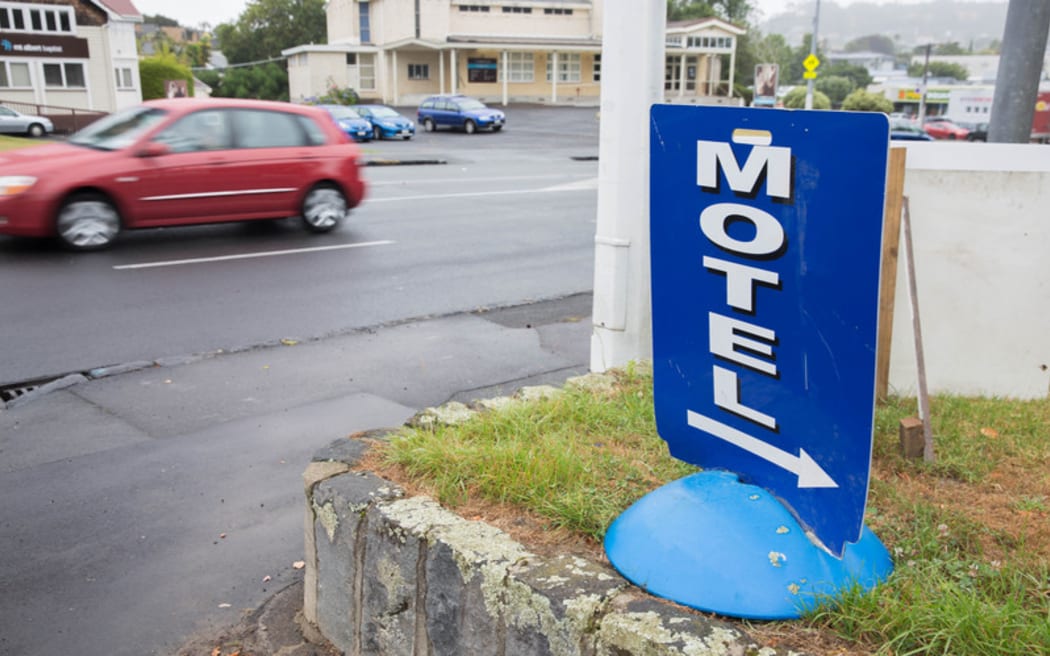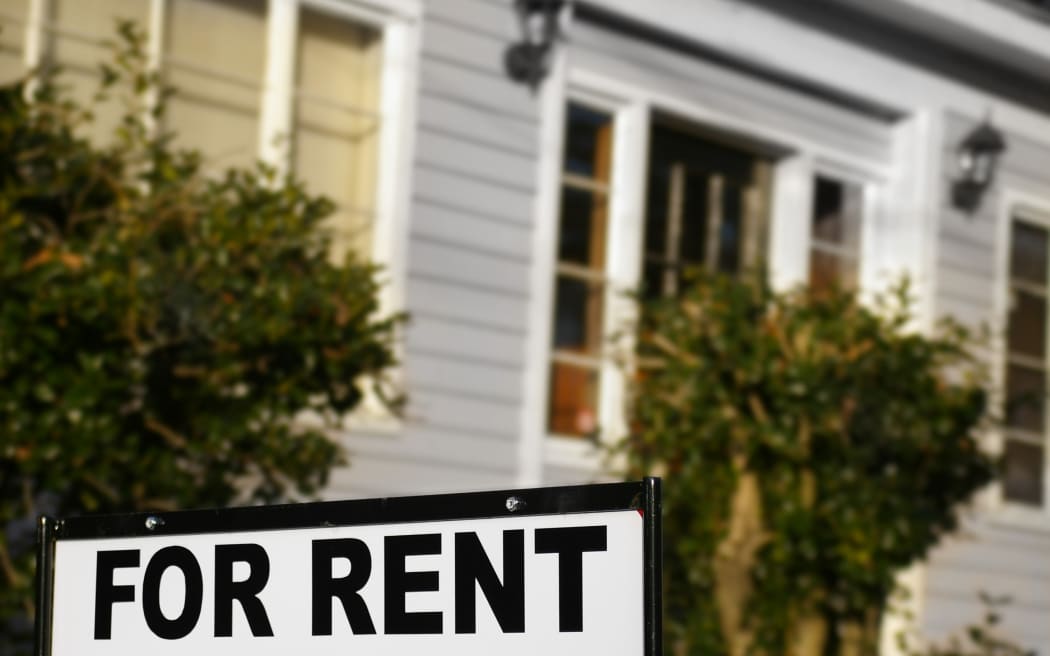
Some people ended up in hotels, whilst others were put up in motels or serviced apartments (file picture). Photo: RNZ / Cole Eastham-Farrelly
Hundreds of people with storm-damaged homes are still living in hotels and motels more than five months on from the Auckland floods and Cyclone Gabrielle.
Contracts for this accommodation have contributed to a spend of more than $27 million by the government's Temporary Accommodation Service (TAS) since it was activated in February.
From September, more displaced people will be able to access support for private rental accommodation. But with a limited pool of rentals available, TAS says people who need to stay in their costly rooms can do so for as long as they need.
When Cyclone Gabrielle brought landslides down the cliffs near her Muriwai home, Amy Nelson had to evacuate overnight. A week later, her family of six had already moved between four different houses.
"There's obviously the initial shelter that you seek on the night, then bowl up to a friend's house but they don't have any space, then go to another friend's house where there's a couple of rooms, then find a tiny flat that you can stay in for a couple of weeks," she said.
"It was at that point that we realised this wasn't going to be a couple of days and then you go home type of thing."
Nelson said when she called TAS, they were already overwhelmed.
"They were basically just like, 'We've got nothing, take anything you can get. There's nothing in your area; there's barely anything in Auckland. Good luck to you. If you find anything, grab it with both hands and worry about how to pay for it afterwards'," she said.
"That was their advice."
Fellow Muriwai resident Lauren Wetini had a similar experience.
"It was subsidised rent which for a family of five is like $650 a week, which doesn't feel like much of a subsidy, especially when you're having to pay a mortgage as well," she said.
"You can say where you'd like to live, but there are no guarantees that you'd get a rental in your community."
While TAS was telling people to get into whatever housing they could, the service was also scrambling to secure whatever accommodation it could.
It meant that in Auckland, some people who were able to access the service ended up in five-star hotels like Movenpick, Pullman, or JW Marriott, while others went into motels or serviced apartments.

There is only a limited pool of rental properties available for those who have been displaced (file picture). Photo: 123rf
When his Massey home was flooded, Trushar Maisuria and his family of four were put up at the Crowne Plaza in the CBD.
A standard room there typically goes for $200-300 a night - and the family needed two of them. Although it might sound like a pleasant staycation, Maisuria said it came with a brand-new set of challenges.
"We had to travel 22 kilometres a day just to drop our kids to school and pick them up," he said.
"There were no kitchen facilities, so basically you can't cook anything. There wasn't even a toaster to toast your bread."
TAS then moved them into an apartment in Henderson, much nearer to home.
But even after the TAS subsidy, Maisuria was still paying $450 a week in rent while also forking out almost $500 on mortgage payments. The family had been living in the apartment for about three months, but Maisuria said he was nervous he might get moved out at a moment's notice.
"Most of our items are in boxes; we keep clothes in bags in case they say we have to move.
"I don't want to keep unpacking and repacking again and again."
While Maisuria's hotel stay was short-lived, hundreds of others were still living in commercial accommodation.
In Auckland alone, as of 26 July, TAS had 150 serviced apartments, 88 houses, 84 apartments, 39 hotel units, eight motel units, and three lodges or cottages on its books - although some of these may be vacant.
The biggest cluster of temporary accommodation was in Auckland Central, with 163 units. There were 79 units in West Auckland, 75 in South Auckland, 37 on the North Shore, and 18 in East Tāmaki.
In Hawke's Bay, motels were more common, with the majority in Napier. In this region, TAS had 122 motel units, 49 houses, 32 holiday park units, eight lodges and one apartment.
Tairāwhiti had 36 houses and 24 motel units, Northland had 16 hotel units and one motel unit, and Waikato had two motel units.
As of 31 May, the government had spent $27.8m providing accommodation through TAS. Head of accommodation response Fadia Mudafar said in the aftermath of the devastating storms, the priority was to get people into shelter at all costs.
"It is in many cases just the best option," she said.
"We do have a housing issue, so it's not something that is readily available."
TAS did not have a limit on how much it could spend on a household's accommodation. Instead, it subsidised rent based on the lowest quartile of market rent for the region, whether people were put up in five-star hotels or holiday parks.
"Even if we're providing them with commercial accommodation, they only have to pay 90 percent of that lower quartile, even if it means that we're paying a lot more than that, because we've had to house them in emergency accommodation.
"So, it is very heavily subsidised."
Mudafar said while TAS was always looking to get people out of hotels and into more stable accommodation, it would not be forcing anyone out.
"As long as they continue to be eligible for TAS, they can continue to stay."
A new form of support to help displaced people with the cost of renting would begin on 4 September. Families would be able to access up to $610 a week in Temporary Accommodation Assistance payments. Eligible homeowners could receive a backdated payment covering them from 1 June.
The government had allocated $10m to the cause, which it said could support 300 households in private rentals for up to 12 months. Meanwhile, subsidies for the more than 400 households still in TAS lodgings could continue to cost the government tens of millions more.

